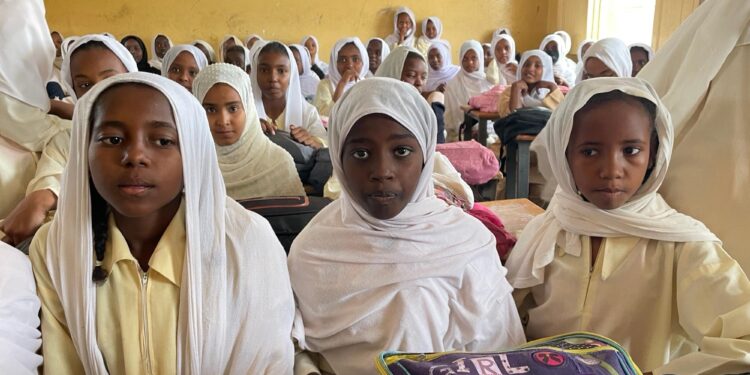Sudan Marks Six Years Since the Khartoum Sit-in Massacre: Lingering Pain and Persistent Calls for Justice
It has been six years since the harrowing events of June 3, 2019, when Sudanese security forces violently dismantled a peaceful sit-in protest in Khartoum, leading to the deaths of more than one hundred demonstrators. As Sudan commemorates this tragic anniversary, the collective trauma remains vivid across the nation. Families of those lost, human rights advocates, and civil society organizations have united to pay tribute to the victims while intensifying their demands for justice and accountability. This solemn occasion not only reflects deep sorrow and steadfast resilience but also highlights an urgent call for transparency and systemic reform amid ongoing political instability. As Sudanese citizens remember this dark chapter, their unwavering hope for a democratic future continues to inspire both local communities and international observers alike.
Reflecting on the Khartoum Sit-in Massacre: A Turning Point in Sudan’s Democratic Journey
The sixth anniversary of the Khartoum Sit-in massacre serves as a poignant reminder of a brutal crackdown that profoundly altered Sudan’s political trajectory. The violent dispersal resulted in significant loss of life during what was meant to be a peaceful demonstration advocating democratic reforms. This remembrance honors those who sacrificed their lives while reinforcing persistent calls for justice and human rights protections. Survivors alongside families affected by this tragedy continue sharing personal narratives that embody both grief and determination—ensuring these sacrifices remain etched in national consciousness.
Beyond immediate shockwaves, June 3rd galvanized widespread civic engagement aimed at fostering a society grounded in rule of law where freedoms are safeguarded. Activists across various sectors have coalesced around demands emphasizing accountability from perpetrators involved in state violence—a crucial step toward meaningful political transformation. Among key objectives championed by these groups are:
- The creation of an independent Truth and Reconciliation Commission
- The establishment of memorials honoring victims’ legacies
- The reinforcement of civil liberties through legislative reforms
As Sudan wrestles with its turbulent past amidst ongoing unrest—including recent military coups—the populace remains vigilant about protecting its hard-won democratic aspirations.
Personal Testimonies Highlight Enduring Quest for Justice and Accountability
The reverberations from that fateful day continue shaping public discourse within Sudanese society as survivors courageously recount their experiences under oppressive state actions. These firsthand accounts reveal profound psychological wounds inflicted on individuals who witnessed or endured brutality during the crackdown—underscoring feelings of betrayal by institutions historically marked by impunity rather than justice.
In response, grassroots movements have emerged as vital platforms amplifying victim voices while pushing forward policy changes aimed at redress. Through protests, social media campaigns, and community gatherings, activists emphasize critical reforms such as:
- Transparent independent investigations: Demanding impartial probes into not only the massacre but broader human rights abuses documented over recent years.
- Memorialization initiatives: Advocating public recognition through monuments or dedicated spaces ensuring victims’ stories remain visible.
- Pursuit of legal action: Holding accountable members within security forces implicated in orchestrating violence against civilians.
As this anniversary approaches amid renewed political uncertainty following recent upheavals—including clashes between military factions—the collective resolve among survivors persists: genuine reconciliation is unattainable without justice.
Global Solidarity Urged Amid Ongoing Human Rights Crisis in Sudan
Sudan’s protracted struggle with human rights violations has drawn increasing international concern especially as it marks six years since one of its darkest episodes—the Khartoum sit-in massacre. Activists worldwide urge governments and multilateral bodies to adopt decisive measures addressing continued abuses affecting civilians caught between armed conflict zones.
Key international demands include:
- < strong >Targeted sanctions:< / strong > Imposing penalties on individuals responsible for egregious violations undermining peace efforts.
- < strong >Deployment of UN peacekeeping forces:< / strong > To protect vulnerable populations while supporting transitional justice mechanisms currently lacking sufficient resources.
- < strong >Enhanced humanitarian assistance:< / strong > Providing aid tailored toward displaced persons suffering from ongoing violence exacerbated by economic collapse.
Failure to act decisively risks further destabilizing not only Sudan but neighboring countries already grappling with refugee influxes linked to regional conflicts intensified since 2021 coup attempts disrupted fragile governance structures.
Documenting abuses meticulously remains essential; organizations like Amnesty International report thousands displaced internally due to escalating clashes between paramilitary groups aligned with competing power centers inside Khartoum itself—a stark reminder that unresolved grievances fuel cycles perpetuating instability throughout East Africa’s second-largest country.
Conclusion: Enduring Hope Amid Unfinished Struggles for Freedom & Justice
As six years pass since June 3rd’s tragic events shook Sudan’s capital—and indeed its soul—the pain felt nationwide endures alongside an unbroken spirit demanding change. Families mourning loved ones lost during peaceful protests continue seeking truth amid opaque judicial processes stalled repeatedly due to shifting political tides.
Yet despite setbacks including multiple coups disrupting transitional governance frameworks established after Omar al-Bashir’s ousting in 2019—Sudanese citizens persistently rally behind visions centered on democracy rooted firmly within respect for human dignity.
This milestone serves both as solemn remembrance honoring sacrifice made en route toward freedom—and clarion call urging sustained vigilance from domestic actors complemented by robust global support committed unequivocally toward safeguarding fundamental rights throughout all corners of this resilient nation striving tirelessly against oppression’s shadow.
The legacy left behind compels us all—to recognize that healing cannot commence without confronting injustice head-on; only then can lasting peace flourish across Sudan’s diverse communities yearning collectively for brighter days ahead.














